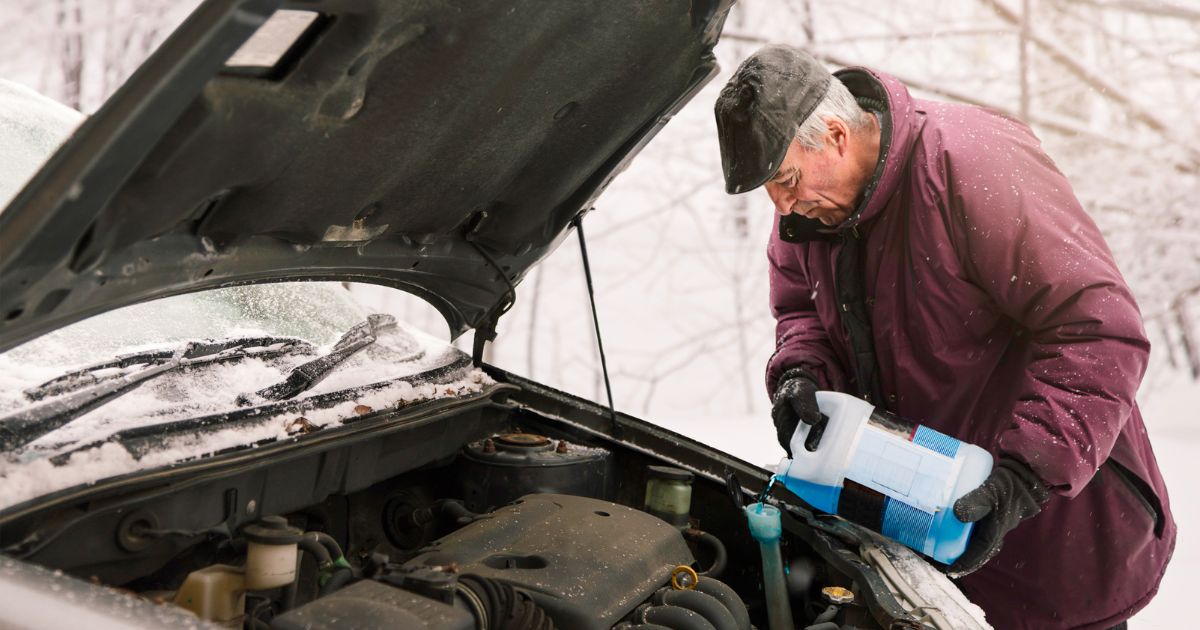What Should I Do to Winterize My Vehicle?

The snow, ice and freezing temperatures associated with the winter season already here in some areas, so now is the time to make sure that your vehicle is prepared for the cold weather. If you are injured in a car accident during the winter months, do not hesitate to contact a highly skilled car accident lawyer.
What Are the Most Common Causes of Winter Car Accidents?
The following are examples of car accidents that are common during the winter months:
- Spin out collisions: When snow, ice or freezing rain causes the roads to become slick and slippery, it is very easy to spin out and lose control of your vehicle. It can be very difficult to regain control of your vehicle, particularly if you were traveling at a high speed. Your instinct may be to slam on the brakes, but this usually does not help, and can even make the situation worse if you hit a patch of black ice. If you do start to spin out of control, try to steer in the direction that you are spinning. Steering in the opposite direction will likely make the situation worse.
- Rear end accidents: These types of accidents are common during the winter because motorists often misjudge the distance between their own vehicle and the car in front of them. When a driver hits the brakes and the road is slippery, this can cause a serious rear end accident, particularly if the driver is traveling at a high speed. Always leave plenty of space between your car and the vehicle in front of you, and increase the amount of space when wintery weather causes roads to be covered in ice or snow.
- Lane drifting accidents: If it is snowing heavily, or there is a thick fog, it can be virtually impossible to see the road ahead. If you cannot see the lane lines on the road, you are more likely to drift into the other lane and cut off another driver or hit another that is in your blind spot. If you veer into oncoming traffic, you could be involved in a serious head-on collision. Stay off the roads when visibility is an issue. If you cannot avoid driving, use extra caution, reduce your speed and pay attention to the vehicles around you.
How Do I Prepare My Vehicle for the Cold Weather?
Proper vehicle maintenance will ensure that your vehicle continues to operate smoothly as the cold weather approaches. The following recommendations will ensure that your vehicle is in good working order so that you can avoid a weather-related car accident:
- Get your vehicle serviced. The cold, harsh winter conditions can cause problems with your vehicle if it is not properly maintained. Have a trusted mechanic ensure that your brakes, belts, battery, and tires are ready for cold weather.
- Check your tires. Depending on where you live, you may want to switch to winter tires during the colder months. Winter tires use compounds that are designed to resist hardening in colder temperatures., which provides better traction in ice, snow and slush. Whether you are using winter tires or all-season tires, it is important that you maintain the recommended tire pressure during the winter.
- Get new wiper blades. This is an affordable part that will ensure that you will be able to keep your windshield clean once snow and ice start to accumulate.
- Keep your gas tank at least half full. When there is more empty space in the gas tank, moisture will start to accumulate, which will dilute the fuel and put unnecessary strain on other parts of the vehicle. If your vehicle breaks down, having plenty of gas in your tank will allow you to keep the car running until help arrives.
What Other Safety Tips Should I Keep in Mind When Driving During the Winter?
In addition to ensuring that your vehicle is maintained, the following are additional safety tips that can help you stay safe during the winter months:
- Avoid driving during inclement weather. If at all possible, stay off the roads if snow, ice or other winter weather is causing roadways to become hazardous and unsafe.
- Do not try to pass a snow plow. If you are stuck behind a snow plow, maintain a safe distance between your vehicle and the truck. Do not try to pass the truck, as the roads in front of the truck have probably not been plowed or salted yet, so the road conditions are going to be less safe.
- Slow down and put distance between you and other vehicles. Whether it is raining, snowing or sleeting, reduce your speed and leave plenty of room between your vehicle, the car in front of you and the other vehicle in the vicinity.
- Keep an emergency kit in your vehicle. Make sure that you have a well-stocked emergency kit in your car in case your vehicle breaks down. This should include the following items:
-
- Blankets, socks and extra warm clothing
- Bottled water
- Cell phone charger
- First-aid kit
- Flashlight with extra batteries
- Jumper cables
- Non-perishable snacks
- Reflective triangles
- Shovel and ice scraper
- Tool kit
Norristown Car Accident Lawyers at Anthony C. Galiano III, P.C. Represent Victims of Weather-Related Car Accidents
If you are seriously injured in a car accident during the winter months, you are urged to contact the Norristown car accidents lawyers at Anthony C. Gagliano III, P.C. at your earliest convenience. We will determine who is responsible for causing the accident, assist you with the claims process and ensure that you receive the maximum financial compensation you deserve. To schedule a free consultation, call us today at 267-930-2922 or contact us online. Our offices are located in Philadelphia and King of Prussia, Pennsylvania, where we represent clients in Philadelphia, Norristown, and throughout Montgomery County, Delaware County, Bucks County, and Chester County.

